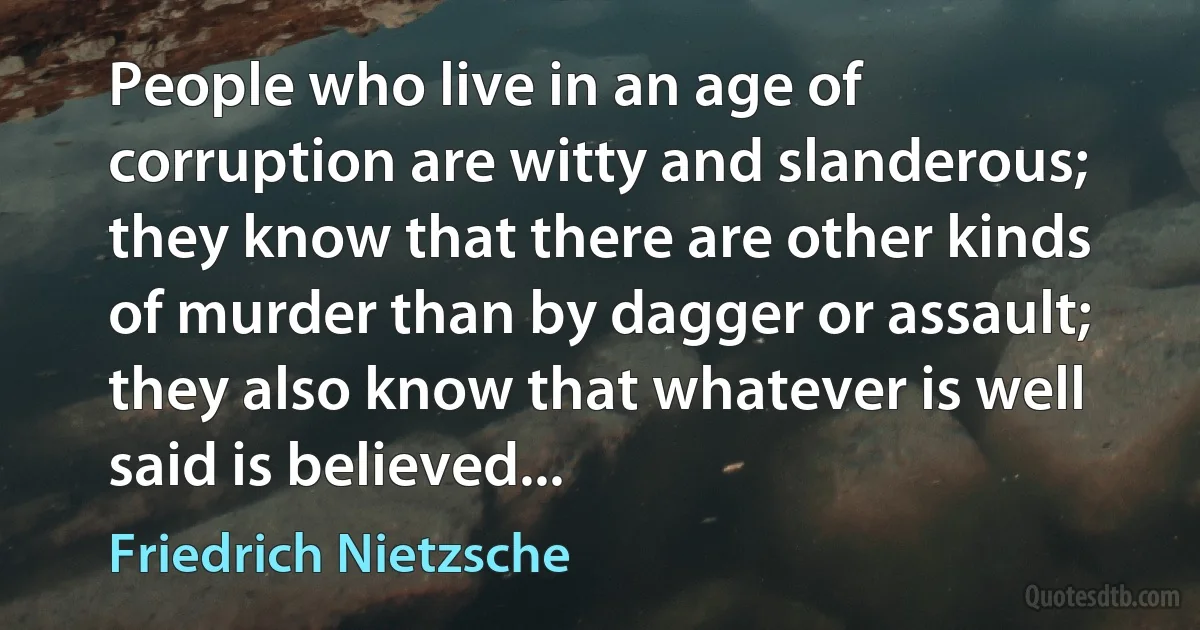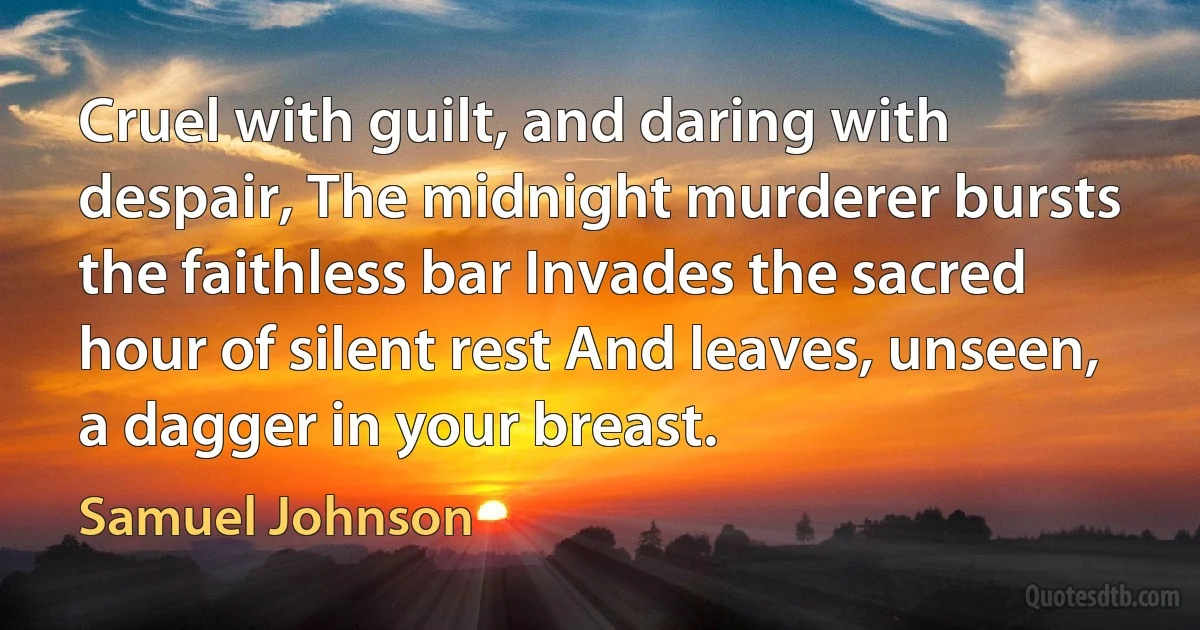Dagger Quotes - page 2
The chief marched out to meet his enemy, and fought for three days with the Musulmans. On the fourth he fled, and sought to get back into the city; but the Musulmans reached the gate before the fugitives, overpowered them, and disarmed them. A dreadful slaughter ensued, the women were dishonoured, and the property seized. When Bahira saw this destruction, he fled with some trusty followers to the tops of the mountains. Mahmud sent a force in pursuit, which overtook and surrounded the party, and put all the chiefs to the sword. Bahira saw that no hope was left, so he drew a dagger and killed himself. Mahmud remained in Bhdtia until he had settled its affairs, and drawn up rules for its governance. He then returned towards Ghazna, having appointed a representative at Bhatia to instruct the people who had become Muhammadans.

Mahmud of Ghazni
The Government of the fort of Kohram and of Samana was made over by the Sultan to Kutbu-d din... [who] by the aid of his sword of Yemen and dagger of India became established in independent power over the countries of Hind and Sind' He purged by his sword the land of Hind from the filth of infidelity and vice, and freed the whole of that country from the thorn of God-plurality, and the impurity of idol-worship, and by his royal vigour and intrepidity, left not one temple standing.

Muhammad of Ghor
He carried no dagger in his mouth, as many reformers have done. He cared for no cause that reason could not win. There never was a more cautious innovator, a more practical dreamer, or a more reasoning revolutionist. Whatever he commended he supported with his purse. It was this that won for him confidence and trust, given to no compeer of his time.

George Holyoake
That wild Irish novel (Blackcock's Feather, Maurice Walsh), a wonderful Elizabethan cloak and dagger story, has started me spinning again, those same old threads; the link between begetting and killing, i. e. that sex and death must both be phenomena of fallen Creation...Another odd parallel; the very men who haven't the courage to beget children, to accept fatherhood, are likely to be pacifists on principle, and opponents of the death penalty. What was it that old Afghan, Mahbud Ali, said to Kim: "When I was fifteen I had shot my man and begot my man!".. as representative of God and Christ glorified, consecrated to him, he [the priest] is absolved from these characteristics of fallen humanity, dispensed, raised above them - neither for ascetic reasons, nor on human grounds, but simply because these are the symbols of the Adamite order.

Ida Friederike Görres
I had to take the necessary steps to prevent this alleged suicide from getting known, to see the commissary of police and the "doctor of the dead." I had to preside at the funeral ceremonies, to receive the guests and act as chief mourner. And always, always, he was present to me, with the dagger in his breast, writing the lines that had saved me, and looking at me, while his lips moved.

Paul Bourget
The universe is female
Eluding the science of men
You sway and you swagger with your neat little dagger
You're gonna blow it again ....
I'll prove her existence in everything
The soul of her rivers and stones
Her acquiescence in everything
Her essence, her presence, her bones. ~ Essence.

Steve Kilbey



